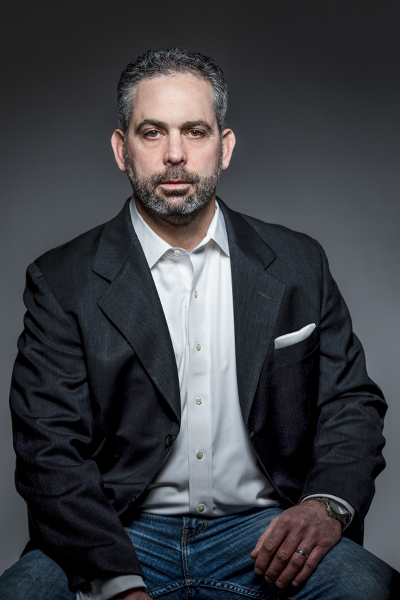Eric Santoro’s early years in law showed him that any strategy based on a predictable playbook is most assuredly a losing one. It’s a lesson the senior litigation counsel at AstraZeneca and 2016 American Conference Institute’s “Champions of the Products Liability Defense Bar Award” winner gleaned from some of Philadelphia’s most well-known litigators at the firm Ballard Spahr. “Successful litigators need to work hard and be strategic, creative, and even a little audacious,” Santoro says. “Those are lessons I brought with me when I went in-house and try to instill in all the litigation teams that I manage.”
While there may be no playbook, Santoro’s accomplishments on behalf of AstraZeneca warrant a deeper look into the his approach on working to minimizing litigation expenses. “Minimizing litigation can have multiple meanings: minimizing ultimate exposure, reducing litigation costs and expenses, or doing a better job of avoiding litigation altogether,” Santoro says. “All of these are important because litigation can be costly, even when you are successful, and money spent on litigation is money that the company doesn’t have for its core business activities.”
Here, Santoro offers five pieces of advice on how to minimize litigation costs, learned from his twenty years of extensive litigation experience.
Hire the Best Team

“One of the most important parts of my job is hiring the right people when a matter starts,” Santoro says. “As the team leader, I work to build chemistry and provide leadership to make sure the team works well together.”
Santoro says that these teams often have to work long and grueling hours together, so promoting a positive team culture is imperative. “A team that doesn’t like each other and doesn’t have fun together is less likely to be successful.”
As a leader, Santoro believes the most valuable quality he can offer is his willingness to listen. “When teams assemble for material litigation, you’re hiring people you think are good at their jobs and are people you trust,” Santoro says. “It’s important to give them the opportunity to speak and to listen to their advice.”
That willingness to listen comes with a caveat: “It’s my job to listen, but that doesn’t necessarily mean being deferential,” Santoro says. “The teams I manage benefit from me challenging their advice and assumptions, and I personally benefit from the iterative decision-making process that follows.”
Evaluate Litigation Risks Correctly
Another element to successful litigation, Santoro says, is properly evaluating risk. This allows a legal team to proactively build a strategy around that risk, he says. And while situations change and adjustments have to be made, an evaluation provides a framework in which everyone can move ahead confidently. That confidence, Santoro admits, can begin to waver on some stakeholders’ part if litigation seems to be dragging out, even though nothing has really changed in regard to the initial evaluation. “I view it as my job to keep everyone grounded and confident and not to let nerves, anxiety, or a potentially high-damages award undermine a winning strategy,” Santoro says.
Communicate With All Major Stakeholders
“It’s important to understand where litigation fits in to the overall business and to not let litigation goals supersede overarching business priorities,” Santoro says. This is especially important at a research-based biopharmaceutical company like AstraZeneca, Santoro says. “It’s incumbent on the in-house lawyer to devise a strategy consistent with business priorities and lead the overall team to effectuate that strategy.”
Be Creative
Santoro says that to be successful, creativity is key, but that doesn’t mean taking unreasonable or irrational risks. “It does mean you have to take on some risk and be willing to out-think and out-maneuver your adversary,” Santoro says. “Treat each case as a new challenge that requires a unique solution.”
Being creative also means a willingness to be flexible when things aren’t playing out as expected or as hoped. “Sometimes the case strategy doesn’t play out as you initially envisioned it.,” Santoro says. “It’s important to be humble enough to recognize when you made a strategic misjudgment and then be savvy enough to reevaluate and make adjustments before it is too late to do so.”
Control the Costs
Santoro’s last tip for minimizing litigation is controlling costs. Part of this process can be linked to spending appropriate amounts of time on risk evaluation. “You can’t allow your team to get into the habit of trying to mitigate every potential litigation risk regardless of how remote the possible outcome is,” Santoro says. “The best litigators are able to evaluate a case quickly, distill what matters, and allocate resources accordingly.”
Santoro says working to minimize litigation expenses is a part of his in-house role he handles with extra care, because of where that money could be spent. “Every dollar you spend on litigation is money the company does not have to spend on research and development for new and potentially life-saving products,” Santoro says. “This is a responsibility I take very seriously.”
McCarter & English is a four-hundred-lawyer firm serving clients ranging from Fortune 100 companies to midmarket and emerging growth companies. Our interdisciplinary healthcare practice assists clients with navigating the ever changing, complex business, regulatory, and legal issues that impact all aspects of the healthcare industry.


